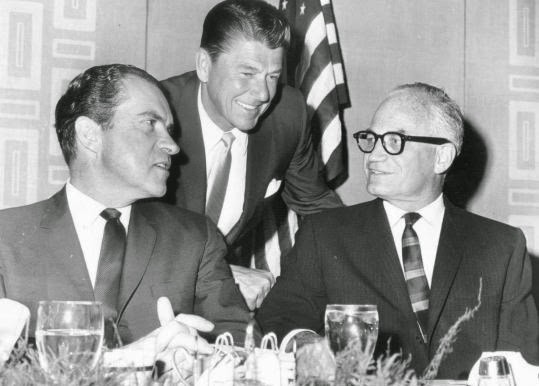Episodes
Thursday Aug 28, 2014
Change or perish in education...How to build a better teacher
Thursday Aug 28, 2014
Thursday Aug 28, 2014
 Almost every aspect of our culture and economy has been touched by technology and creative destruction. Still, three areas have lagged behind, and all three are beginning to be addressed and changed. They are finance, healthcare and education.
Almost every aspect of our culture and economy has been touched by technology and creative destruction. Still, three areas have lagged behind, and all three are beginning to be addressed and changed. They are finance, healthcare and education.Sunday Aug 24, 2014
Information....adapt or perish
Sunday Aug 24, 2014
Sunday Aug 24, 2014
Sunday Aug 24, 2014
The Power of Creative Pairs - The Powers of Two
Sunday Aug 24, 2014
Sunday Aug 24, 2014
 Ginger Roger once said, of her partnership with Fred Astaire, that she did everything he did, “but backwards and in high heels.” In many ways this gets to the heart of partnerships. Two people that have a similar mission, but see it perhaps in opposite and positively reinforcing ways.
Ginger Roger once said, of her partnership with Fred Astaire, that she did everything he did, “but backwards and in high heels.” In many ways this gets to the heart of partnerships. Two people that have a similar mission, but see it perhaps in opposite and positively reinforcing ways.Saturday Aug 23, 2014
The Real Cost of Fracking
Saturday Aug 23, 2014
Saturday Aug 23, 2014
 Across the country, fracking—the extraction of natural gas by hydraulic fracturing—is being touted as the nation’s answer to energy independence. Energy companies have repeatedly assured us that the process is safe,
Across the country, fracking—the extraction of natural gas by hydraulic fracturing—is being touted as the nation’s answer to energy independence. Energy companies have repeatedly assured us that the process is safe,Wednesday Aug 20, 2014
The fall of Nixon and the rise of Reagan
Wednesday Aug 20, 2014
Wednesday Aug 20, 2014
Monday Aug 18, 2014
Have we reached the end of American community?
Monday Aug 18, 2014
Monday Aug 18, 2014
 The world has changed. We can intimately and immediately know what's taking place in the far reaches of the world or across America. But we often don’t know what’s going on with our neighbors and in our own community.
The world has changed. We can intimately and immediately know what's taking place in the far reaches of the world or across America. But we often don’t know what’s going on with our neighbors and in our own community.Sunday Aug 17, 2014
Have we reached The End of Absence?
Sunday Aug 17, 2014
Sunday Aug 17, 2014
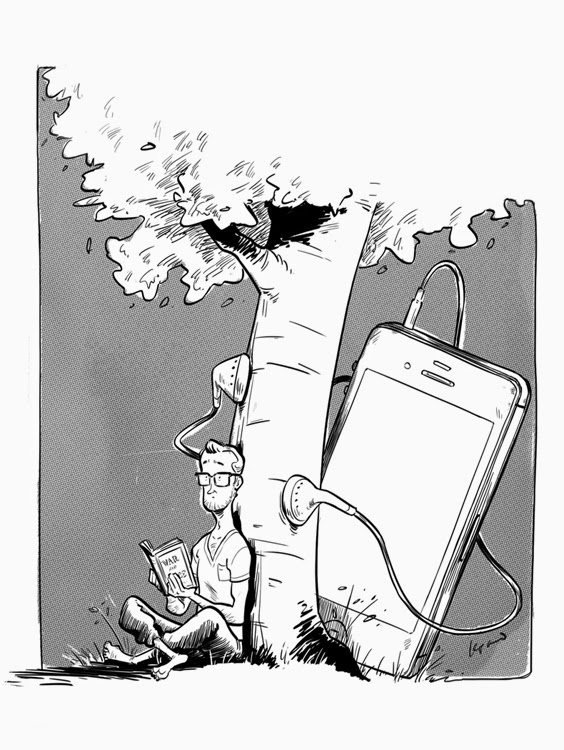.jpeg) There once was a time before the internet, before the automobile, before air conditioning, and television and radio and even before the printing press. All these inventions and many others, dramatically transformed the ways in which we live. At the time each was criticized for the ruinous impact it would have. The printing press was thought to be the end of religion, air conditioning would keep us inside, and not allow us to connect with others. The automobile would destroy community and television would pollute our brains.
There once was a time before the internet, before the automobile, before air conditioning, and television and radio and even before the printing press. All these inventions and many others, dramatically transformed the ways in which we live. At the time each was criticized for the ruinous impact it would have. The printing press was thought to be the end of religion, air conditioning would keep us inside, and not allow us to connect with others. The automobile would destroy community and television would pollute our brains.Thursday Aug 14, 2014
Three Women at Home and at War
Thursday Aug 14, 2014
Thursday Aug 14, 2014
Wednesday Aug 13, 2014
Looking at Feguson through the eyes of the South in 1964
Wednesday Aug 13, 2014
Wednesday Aug 13, 2014
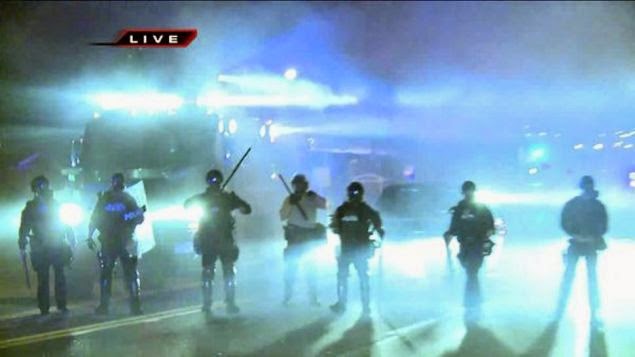 Fifty years ago this summer, Americans, both black and white, gave their last full measure of devotion in an effort to register African American voters in Mississippi.
Fifty years ago this summer, Americans, both black and white, gave their last full measure of devotion in an effort to register African American voters in Mississippi.Tuesday Aug 12, 2014
Do you believe in magic?
Tuesday Aug 12, 2014
Tuesday Aug 12, 2014
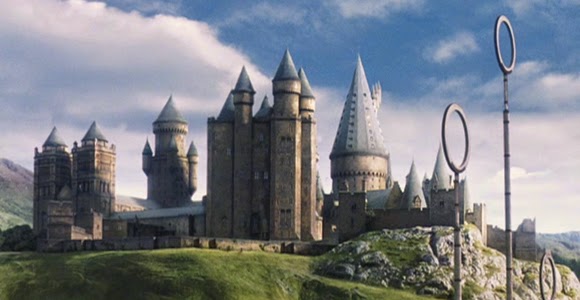 Perhaps it’s the state of the world today, but everywhere fantasy seems to be in ascendancy. The retelling of Narnia, Harry Potter, Game of Thrones and Lev Grossman’s The Magician series, all speak to what seems to be a compelling need.
Perhaps it’s the state of the world today, but everywhere fantasy seems to be in ascendancy. The retelling of Narnia, Harry Potter, Game of Thrones and Lev Grossman’s The Magician series, all speak to what seems to be a compelling need. Sunday Aug 10, 2014
Can we ever achieve a shared truth about the legacy of slavery?
Sunday Aug 10, 2014
Sunday Aug 10, 2014
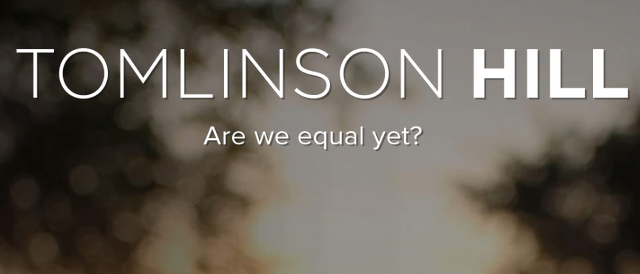 When Barack Obama was elected President, we heard lots of loose talk about this being a post racial society. It was as if a magic pill had taken the issue of race and identity out of our consciousness.
When Barack Obama was elected President, we heard lots of loose talk about this being a post racial society. It was as if a magic pill had taken the issue of race and identity out of our consciousness.Thursday Aug 07, 2014
What did he know and when did he know it....is a Nixon defense even possible?
Thursday Aug 07, 2014
Thursday Aug 07, 2014
 For 40 years, the Focus of the conversations about Watergate has been what did the President know and when did he know it. The revelations from the release of and the listening to more and more of the 3700 hours of White House tapes, has pretty much now clarified that issues.
For 40 years, the Focus of the conversations about Watergate has been what did the President know and when did he know it. The revelations from the release of and the listening to more and more of the 3700 hours of White House tapes, has pretty much now clarified that issues.Thursday Aug 07, 2014
What did he know and when did he know it....is a Nixon defense even possible?
Thursday Aug 07, 2014
Thursday Aug 07, 2014
 For 40 years, the Focus of the conversations about Watergate has been what did the President know and when did he know it. The revelations from the release of and the listening to more and more of the 3700 hours of White House tapes, has pretty much now clarified that issues.
For 40 years, the Focus of the conversations about Watergate has been what did the President know and when did he know it. The revelations from the release of and the listening to more and more of the 3700 hours of White House tapes, has pretty much now clarified that issues.Wednesday Aug 06, 2014
Is our long national nightmare over yet?
Wednesday Aug 06, 2014
Wednesday Aug 06, 2014
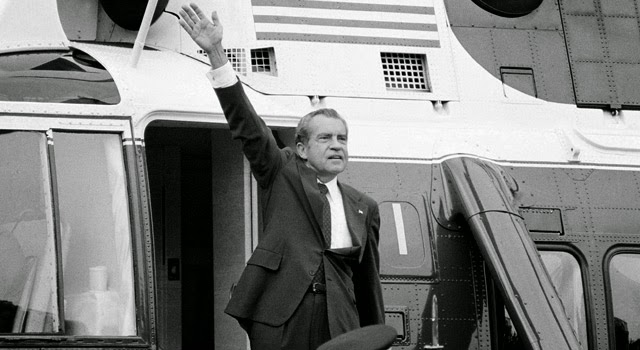 For journalists, for historians, and for political junkies, Richard Nixon is the gift that keeps on giving. There are over 3700 hours of Nixon tapes and only a portion have been released and deconstructed.
For journalists, for historians, and for political junkies, Richard Nixon is the gift that keeps on giving. There are over 3700 hours of Nixon tapes and only a portion have been released and deconstructed. Tuesday Aug 05, 2014
The deep trouble of exploration
Tuesday Aug 05, 2014
Tuesday Aug 05, 2014
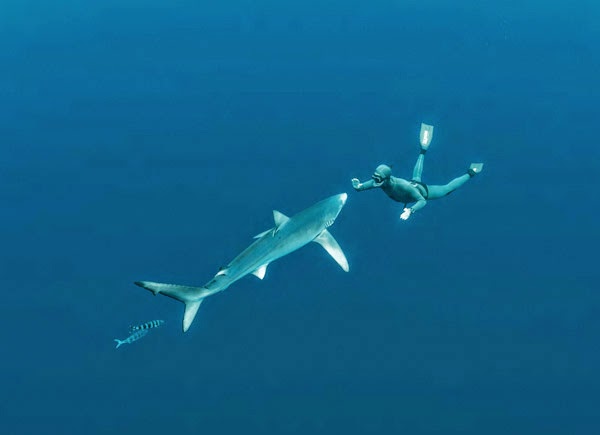 From the undersea adventures of Jules Verne, to Peter Benchley’s The Deep to Jim Cameron’s The Abyss, we flock to movies and literature that takes place underwater. We are fascinated by, but know so little about, the undersea world.
From the undersea adventures of Jules Verne, to Peter Benchley’s The Deep to Jim Cameron’s The Abyss, we flock to movies and literature that takes place underwater. We are fascinated by, but know so little about, the undersea world. Tuesday Aug 05, 2014
The ecological history of greater New York
Tuesday Aug 05, 2014
Tuesday Aug 05, 2014
Sunday Aug 03, 2014
Why Vietnam still matters
Sunday Aug 03, 2014
Sunday Aug 03, 2014
 Think about the things that shape our world, our perceptions and our culture. For a large part of the population, the experience of America’s mistakes in Vietnam has long shaped our engagement in the world. The country's disrespect, at the time, for the service of those that served in Vietnam, in many ways positively shapes the way we respond to Veterans' needs today.
Think about the things that shape our world, our perceptions and our culture. For a large part of the population, the experience of America’s mistakes in Vietnam has long shaped our engagement in the world. The country's disrespect, at the time, for the service of those that served in Vietnam, in many ways positively shapes the way we respond to Veterans' needs today.Thursday Jul 31, 2014
Parenting 101 - Lead with Acceptance
Thursday Jul 31, 2014
Thursday Jul 31, 2014
 Every generation of parents wants their children to do better than themselves. It seems though that to accomplish that today, as NY Times columnist Tom Friedman and others have warned, "average is no longer good enough."
Every generation of parents wants their children to do better than themselves. It seems though that to accomplish that today, as NY Times columnist Tom Friedman and others have warned, "average is no longer good enough."


